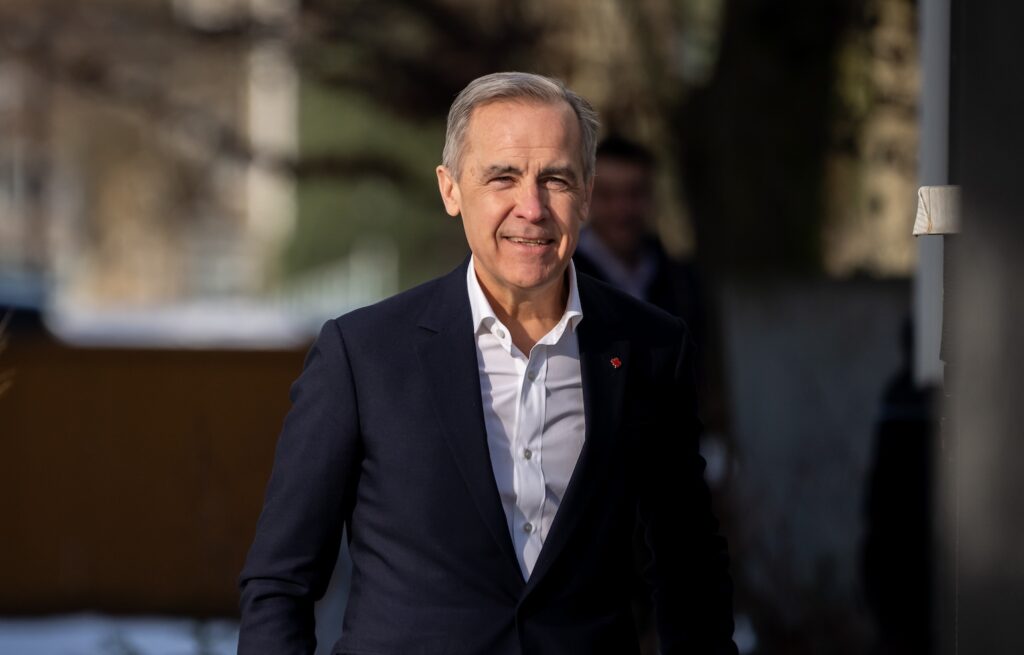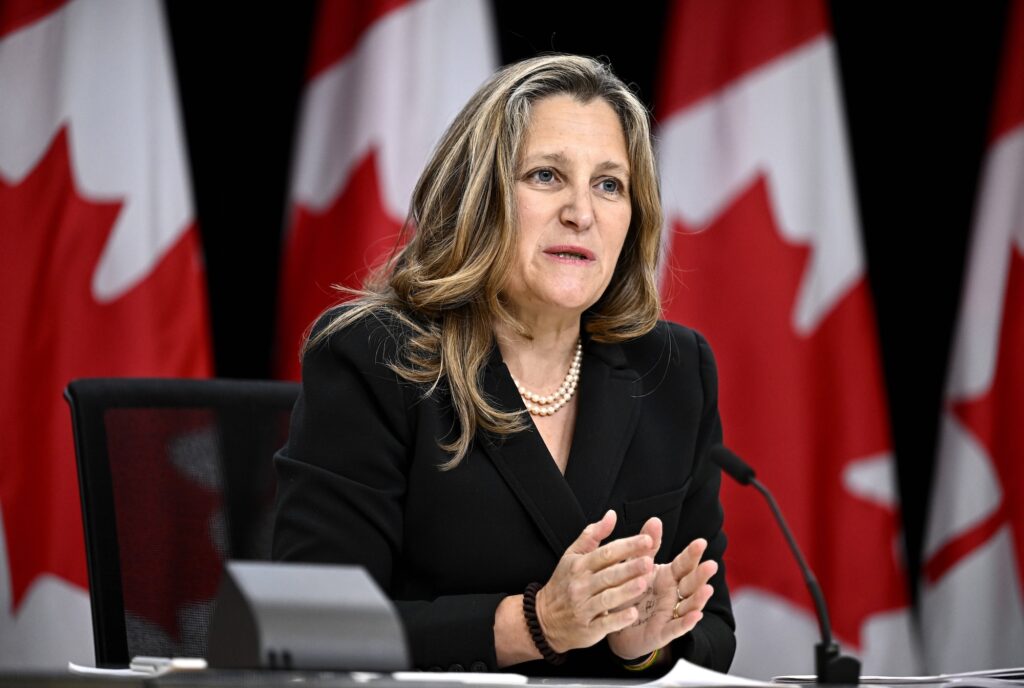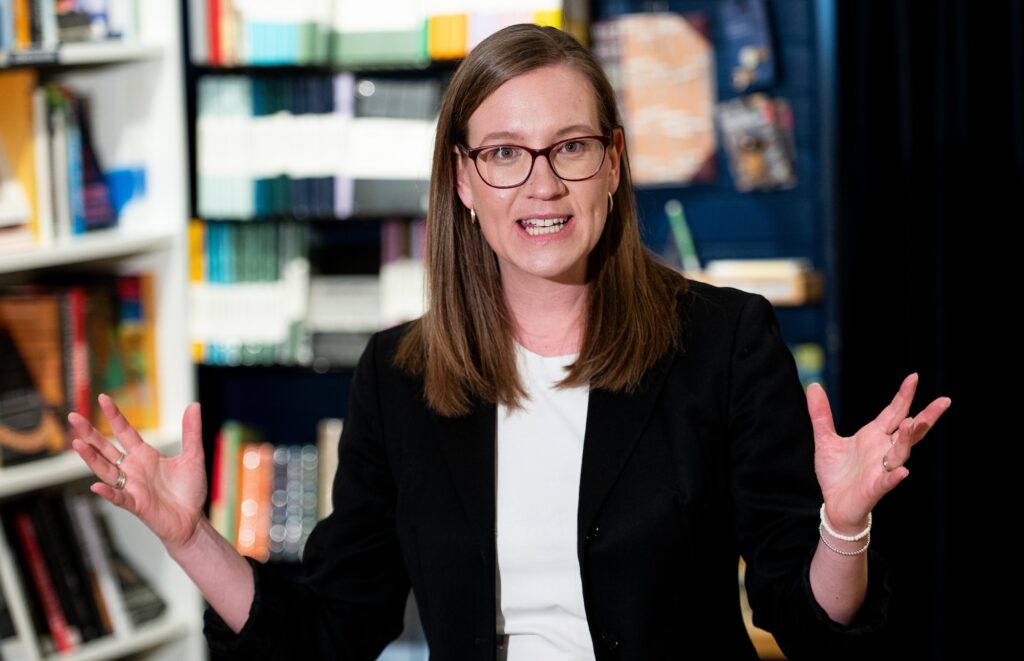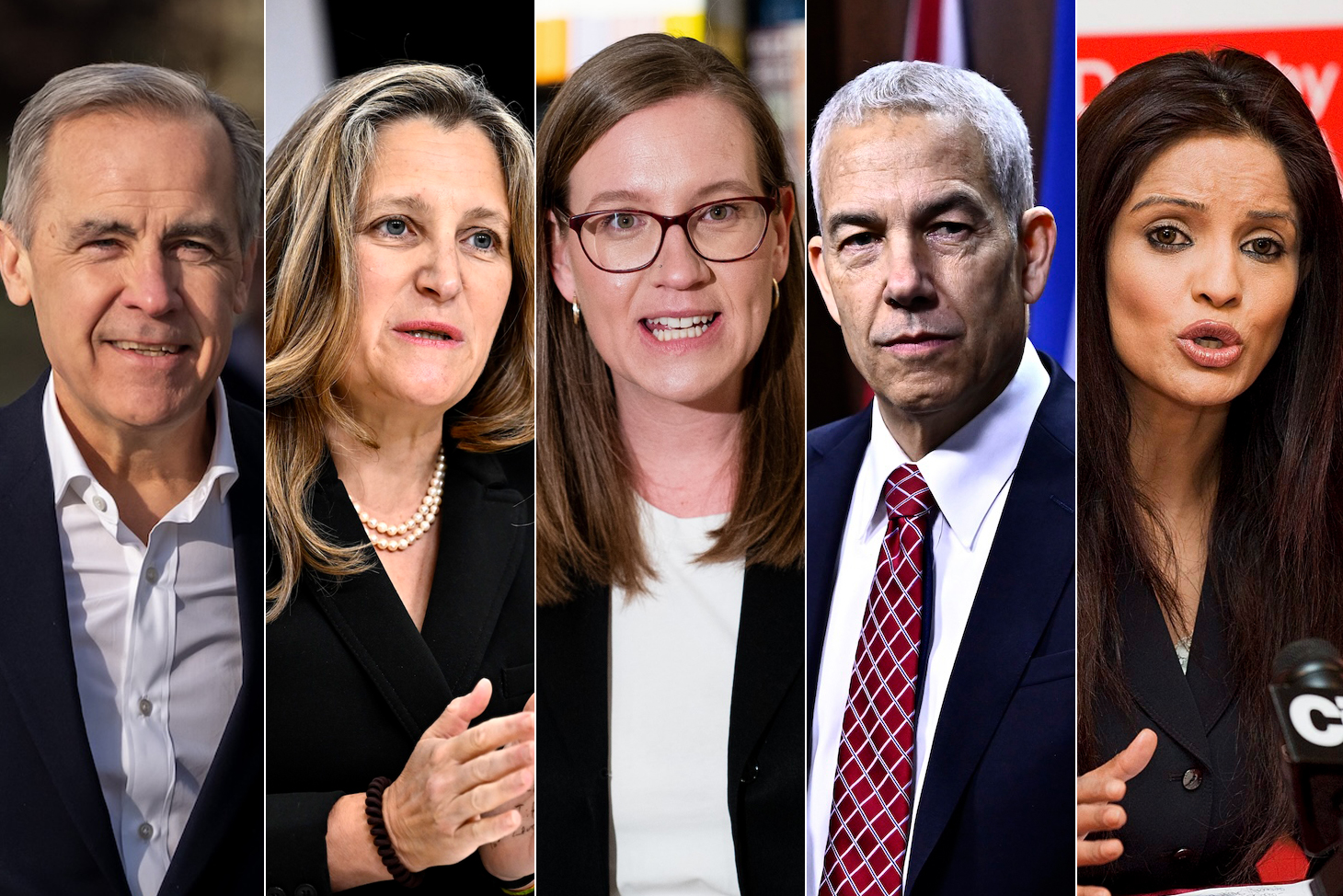The Trump effect
When a new leader of the Liberal Party of Canada is announced on March 9, they will face three distinct and immediate issues; assuming the duties of being prime minister at the precipice of a general election; revitalising a party that has lost support after nine years in power; and addressing an existential trade war with the country’s largest economic partner. If U.S. tariffs are implemented on March 5 — when the current 30-day pause for negotiations ends — the new Liberal leader and prime minister will assume their responsibilities less than 100 hours later.
In what was already set to be a consequential campaign, the return of President Trump to the White House and the threat of 25 per cent U.S. tariffs on Canadian goods has upended the dynamics of the Liberal leadership race.
For Mark Carney, Chrystia Freeland, and Karina Gould — the top three contenders in the race — a response to U.S. tariffs has become a central question for their campaigns, with each offering strategies on how best to address the economic threat. In many cases, each candidate has positioned themselves as a direct counter to Trump, including through arguing that Pierre Poilievre does not go far enough to protect Canada’s economy or sovereignty.

Mark Carney – Looking for a man in finance
For Mark Carney, the current frontrunner in the Liberal leadership race, the tariff threat presents an opportunity to underscore his financial experience across the public and private sectors. A recent poll by Nanos Research found that 39.6 per cent of Canadians surveyed consider Carney to be the most qualified leader to negotiate with the Trump administration, compared to 26 per cent that favoured Poilievre.
Carney has called the tariffs a “clear violation” of existing trade agreements, and has advocated for a strong, dollar-for-dollar, economic response. According to the former central banker, Canada should rethink its economic policy through expanding trade opportunities in Asian and European markets, while maintaining close economic ties with the U.S. on automotive, energy, and security considerations. Carney also believes Canada should play to its strengths in clean energy, critical minerals, and tech, and AI.

Chrystia Freeland – Experience in dealing with Trump
With previous experience in renegotiating NAFTA under the first Trump administration, Chrystia Freeland has also offered a forceful response to tariffs, including calling the recently threatened tariffs on aluminum “an act of self-harm – self-mutilation – by the United States” in a February 13 op-ed in the New York Times. In her “plan to stand up to Trump,” Freeland would seek dollar-for-dollar and politically targeted tariffs on U.S. goods, convene an international summit to form a coordinated multinational response, stop all federal government agencies from purchasing U.S. goods, and forbid American companies from bidding on Canadian federal procurement contracts.
Freeland has also employed U.S. media in several instances to further her message on trade. In addition to the NYTimes op-ed, Freeland has recently written in the Washington Post and appeared on CNN and MSNBC.

Karina Gould – “We’re not backing down”
Karina Gould has also advocated for a strong and forceful response to tariffs, including going so far as calling Pierre Poilievre a “Timbit Trump” for taking pages out of the American President’s own playbook, after holding a “Canada First” rally.
If elected, Gould would seek to reinforce Canadian businesses at home and abroad, namely through increasing options for interprovincial and international trade and by removing regulatory barriers in order to encourage entrepreneurship and innovation.
Upcoming leadership debates (February 24 and 25)
All five leadership contenders; Mark Carney, Chrystia Freeland, Karina Gould, Frank Baylis, and Ruby Dhalla, will face each other in two debates in Montreal.
On February 24, the candidates will participate in a French debate moderated by TVA-Québec’s Pierre Jobin.
The following day on February 25, the leaders will meet for an English debate moderated by former CBC News Anchor Hannah Thibedeau.
Both debates will be held between 8 – 10 PM EST and will be streamed on the Liberal Party’s YouTube page.
Fundraising update
On February 18, Elections Canada released the amounts raised by each candidate with less than three weeks to go until a new leader is named.
Mark Carney: $1.9 million from 11,260 contributors
Karina Gould: $236,075 from 1,375 contributors
Chrystia Freeland: $226,661 from 332 contributors
Frank Baylis: $227,441 from 188 contributors
Ruby Dhalla: $144,880 from 109 contributors
Following Elections Canada’s release, Freeland’s campaign added that the update does not tell the “whole story” of her fundraising efforts. Her team says that the campaign raised a sum close to $600,000 from over 2,000 contributors, with most funds going directly to the Liberal Party to avoid transaction fees. Freeland was the only candidate to send funds directly to the party.
In part due to fundraising irregularities, the party reportedly sent a list of questions to Ruby Dhalla’s campaign concerning possible foreign interference allegations.
The next round of funding updates will be released on March 6, three days before the leadership convention.
Key dates and figures
- February 24: French-language leaders’ debate.
- February 25: English-language leaders’ debate.
- March 9: Liberal leadership convention. A new leader is selected.
- Liberal MP endorsements: 66 for Mark Carney, 27 for Chrystia Freeland, and 2 for Karina Gould.
Insights in this piece contributed by Tom Chan and Geoff Norquay.
